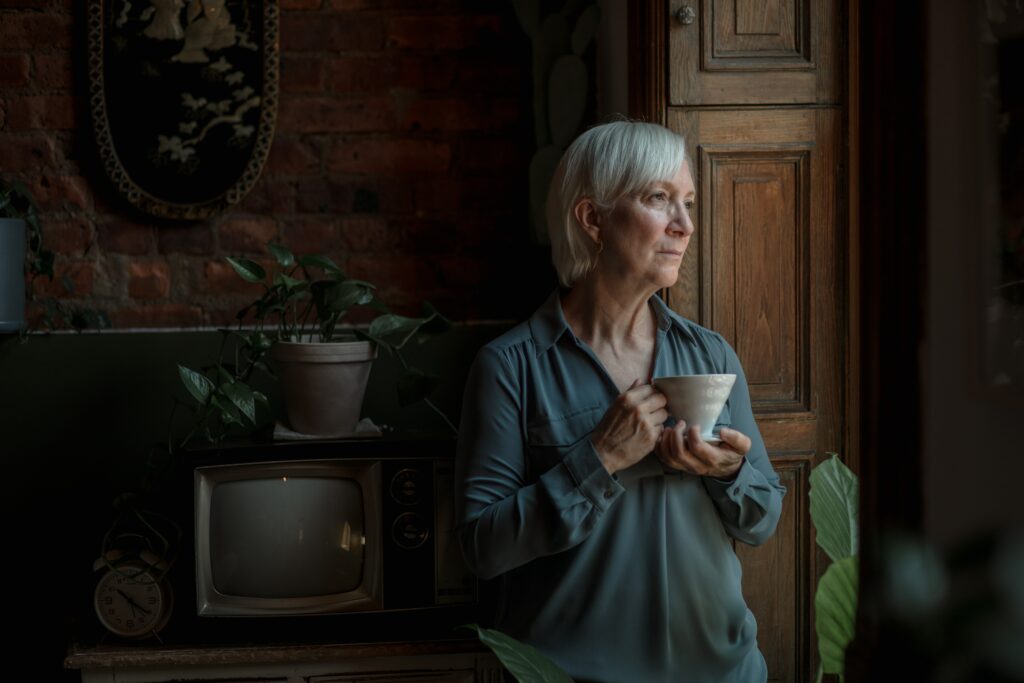Our aging population is continuously increasing each year. And more people are living longer now than they did several decades ago. Advances in technology is one of the main reasons for this. The USAFacts.org website states, people that women are likely to live five to seven years longer than men, leaving more widows living alone than men do. There are also several reasons why seniors live by themselves. Sometimes it is by choice, while other times it is due to losing a spouse. Next, are some of the main reasons why senior adults are living alone.
Main Reasons Aging Adults Live Alone

By choice
Surprising or not, some people just prefer to live alone. This is true about older adults as well. They may be used to being alone for some time that they just like to stay alone. That doesn’t mean their introverts, they just like being in solitude. Even seniors who are in a relationship, tend to not move in with their new partner.
Cultural influences
Most other countries, seniors tend to live with family as they get older, sometimes as much as several generations in one household. However, here in the US, about 27 percent of adults ages 60 and older live alone, compared to around 16 percent of adults in over 130 other countries and territories, according to the Pew Research Center. Many US senior adults just prefer their independence and some choose solidary over living with their kids or grandkids.
Death of a spouse
When a spouse passes, it is hard on the whole family. However, it is also one of the main reasons why some seniors choose to live alone. For some couples that have lived together for many years, then loses a spouse may find it difficult to live with others. This includes living among family members, such as their kids or grandchildren. It can take some time for them to build new relationships as well.
Divorce

Similar to losing a spouse, some people that are divorced later in life never remarry or unwilling to live with anyone else, once their marriage is over. Some feel their past love was enough, and living again with another person is not worth the stress.
No other arrangements are available
Unfortunately, some seniors or older adults may find it hard to live with others because of their own impairments. Whether it be a physical condition, mental condition, or both. Family may find it to become more challenging to take care of them. This can cause stress on not only the senior but the family as well. Sometimes the physical aspect of the move itself is hard, not to mention the financial burden it has on others around them.
The Good and the Bad to living alone as an older adult
As we see that many seniors have their reasons of why they choose to live alone. Now let’s share about the pros and cons of choosing to live alone as an older adult. Some will make complete sense of why a senior would want to live alone, while others can be surprising reasons. We will also touch on the cons of living alone and how it can affect people around you.

Pros of living alone
Independence: freedom to do what you want, when you want. Seniors that live alone can eat meals, watch TV, go shopping, and search for anything online, according to their own schedule, no one else to tell them any different.
No lifestyle changes: Seniors can structure their activities to suit themselves. Living alone allows you to pursue those social and recreational activities that are most important to you.
Cons of living alone
Although many seniors enjoy the independence that living alone provides ti them, some people will suffer from social issues when they are around others because of it. Here are some common risks of living alone.
- The risk of social isolation and being alone can be a concern.
- There is no one to care for you if and when you get sick or disabled.
- Living alone provides no social interaction in the home.
- You alone have to put forth the effort to stay engaged and connected.
- Living alone without someone can cost more because there is no one to share in the expenses.
Tips to Preventing Loneliness When Living Alone
1. Communicate daily with someone.
If you live alone, you should talk to someone every day. Whether it be a neighbor, a family member, or a friend. As a result, this will help seniors feel connected and less alone. The best way is in-person, however, if you can’t, communicating by phone or email can be just as good. When senors live alone for too long, it can lead to negative feelings of self-worth, Reaching out to someone, at least once a day can be a healthy habit to do when alone.
2. Volunteer regularly
The kind act of just volunteering can reduce signs of loneliness or social anxiety in older adults. Whether it is at the local animal shelter, nursing home, or library, there are many opportunities for seniors to volunteer their time and skills throughout their community. Check with your local Area Agency on Aging for resources to help you get started and make a difference.
3. Plan or make a schedule for socializing with others
One ways to making sure you are around others is by having a job. Some seniors get a part time job to combat loneliness. Other ways is to plan an event to be with others. Or, a place where you can go to meet new and old friends. Make your planning as flexible as possible, since changes in scheduling do happen. Make goals each week to see a particular friend or family member to help you not be alone.

4. Get tech savvy!
Learning more about computers, social media sites, and online shopping can help seniors stay connected the world around them, without even leaving their home. For some seniors, learning about the internet may feel intimidating, but it can be a great way to keep in touch with family or friends that may not live near by. Seniors or older adults that are not familiar to how to open online accounts, it may be a good idea to ask your kids or grandchildren. With the use of smartphones, it is easier to stay connected. Kids can pretty much teach seniors how to communicate faster online than the average adult. Kids also can help set up Facetime, Instagram, and Facebook as well. Networking is simple to do as well, especially that more people are relying on video conferencing for work and social reasons.
5. Check out Companion services
Some seniors that are alone really do not want to be, at least for some of the time. This is when seeking out companionship services are a great option. Seniors can find services in a couple of ways. One is by contacting a local agency. Services can be provided for just a few hours a day or week, and can make a huge impact on seniors that are alone. There is a price for the services, but if you can afford it, it may be worth checking it out. Another way is by contacting your local aging and adult services in the area. They may be helpful in directing seniors to resources if you qualify for them.

Help for Aging adults that are living alone
Social connections are important for all adults, especially the elderly. For seniors who have access to the internet, there are many resources to explore to combat loneliness and fight against social isolation. Staying connected helps seniors to share their passions, skills, and interests to other both online and offline. These resources include, but not limited to are:
AARP
Whatever you are looking for, AARP has it. From blogs, videos, educational articles, and live social events. Seniors can also volunteer their time to help with activities and programs offered on a monthly basis.
Road Scholar
Road Scholar, which started in 1975 provides educational opportunities for aging adults at college campuses throughout the nation. There are over 5,500 learning adventures in 150 countries in all 50 states offered today.
Meetup

Meetup brings together senior adults of similar interests, to join or start a group together. The types of groups range from social activity groups, hiking or walking, and sports groups. If you can’t find a group that interests you, start one! However, some of the groups that meet, are for single people only.
Emergency Response Systems
Emergency Response Systems (ERS) doesn’t just save lives. It can detect falls, contact GPS systems, and will automatically call 911 if you are in an emergency situation and suspect you are immobile for more than a minute. Seniors have the option of the pendant or the watch series for detection.